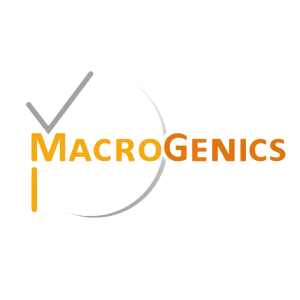MacroGenics Announces FDA Approval of MARGENZA™ for Patients with Pretreated Metastatic HER2-Positive Breast Cancer
Rhea-AI Summary
The U.S. Food and Drug Administration (FDA) has approved MARGENZA (margetuximab-cmkb), a new HER2-targeted therapy for adult patients with metastatic HER2-positive breast cancer, who have undergone at least two prior anti-HER2 treatments. This approval is based on the Phase 3 SOPHIA trial, which demonstrated a 24% reduction in the risk of disease progression compared to trastuzumab plus chemotherapy. The product launch is anticipated in March 2021, signaling significant advancements in treatment options for patients with limited alternatives.
Positive
- FDA approval of MARGENZA enhances treatment options for metastatic HER2-positive breast cancer patients.
- MARGENZA showed a statistically significant 24% improvement in progression-free survival versus trastuzumab.
- Product launch expected in March 2021, indicating market readiness.
- First product from MacroGenics' pipeline, potentially opening avenues for future growth.
Negative
- MARGENZA carries a boxed warning for left ventricular dysfunction and embryo-fetal toxicity.
News Market Reaction – MGNX
On the day this news was published, MGNX declined 0.28%, reflecting a mild negative market reaction.
Data tracked by StockTitan Argus on the day of publication.
- MARGENZA (margetuximab-cmkb) is the first HER2-targeted therapy to have improved progression-free survival (PFS) versus Herceptin® (trastuzumab), both combined with chemotherapy, in a head-to-head Phase 3 clinical trial
- MARGENZA is approved, in combination with chemotherapy, for the treatment of adult patients with metastatic HER2-positive breast cancer who have received two or more prior anti-HER2 regimens, at least one of which was for metastatic disease
- Product launch anticipated in March of 2021
- Conference call scheduled for Thursday, December 17, 2020 at 8:00 a.m. ET
ROCKVILLE, MD, Dec. 16, 2020 (GLOBE NEWSWIRE) -- MacroGenics, Inc. (Nasdaq: MGNX), a biopharmaceutical company focused on developing and commercializing innovative monoclonal antibody-based therapeutics for the treatment of cancer, today announced that the U.S. Food and Drug Administration (FDA) has approved MARGENZA, in combination with chemotherapy, for the treatment of adult patients with metastatic HER2-positive breast cancer who have received two or more prior anti-HER2 regimens, at least one of which was for metastatic disease. MARGENZA is the first product approved from MacroGenics’ promising pipeline. The approval was based on safety and efficacy results from the pivotal Phase 3 SOPHIA trial.
“The approval of MARGENZA is an exciting milestone for MacroGenics and, more importantly, it brings a new treatment option to metastatic breast cancer patients. We are grateful for the patients who participated in this study, as well as their families, and everyone who played a role in helping MacroGenics reach this milestone,” said Scott Koenig, M.D., Ph.D., President and CEO of MacroGenics. “As we prepare for our first commercial launch and look forward to being able to deliver MARGENZA to patients, we continue to focus on developing and commercializing innovative antibody-based therapeutics for the treatment of cancer with eight product candidates currently in clinical development.”
The approval for MARGENZA was based on data from SOPHIA, a randomized Phase 3 clinical trial. The study, which included 536 patients, showed a statistically significant
Adverse reactions occurring in greater than twenty percent of patients with MARGENZA in combination with chemotherapy were fatigue/asthenia (
“Early detection and treatment have had a positive impact on the survival of patients with breast cancer, but the prognosis for people diagnosed with metastatic breast cancer remains poor, and additional treatments are needed,” said Hope S. Rugo, M.D., Professor of Medicine and Director of Breast Oncology and Clinical Trials Education, University of California San Francisco Helen Diller Family Comprehensive Cancer Center. “As the only HER2-targeted agent to have shown a PFS improvement versus trastuzumab in a head-to-head Phase 3 clinical trial, MARGENZA with chemotherapy represents the newest treatment option for patients who have progressed on available HER2-directed therapies.”
"Women with metastatic HER2-positive breast cancer are benefitting from ongoing scientific advances," said Christine Benjamin, LMSW, Chair, Metastatic Breast Cancer Alliance. "We are always excited to learn of additional treatment options that are available to healthcare professionals and those living with metastatic breast cancer."
MacroGenics anticipates that MARGENZA will be available in March of 2021.
Conference Call
MacroGenics will host a conference call for analysts and investors on Thursday, December 17, 2020, at 8:00 a.m. ET. To participate in the conference call, please dial (877) 303-6253 (domestic) or (973) 409-9610 (international) ten minutes prior to the start of the call and provide the Conference ID: 8657888.
The listen-only webcast of the conference call, including presentation slides, can be accessed under "Events & Presentations" in the Investor Relations section of the Company's website at https://ir.macrogenics.com/events.cfm. A replay of the webcast will be available shortly after the conclusion of the call and archived on the Company's website for 30 days following the call.
About the SOPHIA Study
The SOPHIA study (NCT02492711) is a randomized, open-label Phase 3 clinical trial evaluating MARGENZA plus chemotherapy compared to trastuzumab plus chemotherapy in patients with HER2-positive metastatic breast cancer, who have previously been treated with anti-HER2-targeted therapies. All study patients had previously received trastuzumab, all but one patient had previously received pertuzumab, and
The study enrolled 536 patients who were randomized 1:1 to receive either MARGENZA (n=266) given intravenously at 15 mg/kg every three weeks or trastuzumab (n=270) given intravenously at 6 mg/kg (or 8 mg/kg for loading dose) every three weeks in combination with one of four chemotherapy agents (capecitabine, eribulin, gemcitabine or vinorelbine) given at the standard doses. Intent-to-treat PFS analysis occurred after 265 PFS events.
The primary endpoints of the study are sequentially-assessed PFS, determined by blinded, centrally-reviewed radiological review, followed by OS. Additional key secondary endpoints are PFS by investigator assessment, ORR and Duration of Response. Tertiary endpoints include ORR by investigator assessment and safety. PFS and ORR were assessed according to Response Evaluation Criteria in Solid Tumors version 1.1 (RECIST 1.1).
About HER2-positive Breast Cancer
Human epidermal growth factor receptor 2 (HER2) is a protein found on the surface of some cancer cells that promotes growth and is associated with aggressive disease and poor prognosis. Approximately 15
About MARGENZA
MARGENZA (margetuximab-cmkb) is an Fc-engineered, monoclonal antibody that targets the HER2 oncoprotein. HER2 is expressed by tumor cells in breast, gastroesophageal and other solid tumors. Similar to trastuzumab, margetuximab-cmkb inhibits tumor cell proliferation, reduces shedding of the HER2 extracellular domain and mediates antibody-dependent cellular cytotoxicity (ADCC). However, through MacroGenics’ Fc Optimization technology, margetuximab-cmkb has been engineered to enhance the engagement of the immune system. In vitro, the modified Fc region of margetuximab-cmkb increases binding to the activating Fc receptor FCGR3A (CD16A) and decreases binding to the inhibitory Fc receptor FCGR2B (CD32B). These changes lead to greater in vitro ADCC and NK cell activation. The clinical significance of in vitro data is unknown.
Margetuximab-cmkb is also being evaluated in combination with checkpoint blockade in the Phase 2/3 MAHOGANY trial for the treatment of patients with HER2-positive gastroesophageal cancer (NCT04082364), and in combination with tebotelimab (PD-1 × LAG-3 bispecific DART® molecule) in various HER2-positive tumors (NCT03219268). MacroGenics is partnered with Zai Lab for the development and commercialization of margetuximab-cmkb in Greater China. For more information, please visit www.clinicaltrials.gov.
IMPORTANT SAFETY INFORMATION
BOXED WARNING: LEFT VENTRICULAR DYSFUNCTION AND EMBRYO-FETAL TOXICITY
- Left Ventricular Dysfunction: MARGENZA may lead to reductions in left ventricular ejection fraction (LVEF). Evaluate cardiac function prior to and during treatment. Discontinue MARGENZA treatment for a confirmed clinically significant decrease in left ventricular function.
- Embryo-Fetal Toxicity: Exposure to MARGENZA during pregnancy can cause embryo-fetal harm. Advise patients of the risk and need for effective contraception.
WARNINGS & PRECAUTIONS:
Left Ventricular Dysfunction
- Left ventricular cardiac dysfunction can occur with MARGENZA.
- MARGENZA has not been studied in patients with a pretreatment LVEF value of <
50% , a prior history of myocardial infarction or unstable angina within 6 months, or congestive heart failure NYHA class II-IV. - Withhold MARGENZA for ≥
16% absolute decrease in LVEF from pre-treatment values or LVEF below institutional limits of normal (or50% if no limits available) and ≥10% absolute decrease in LVEF from pretreatment values. - Permanently discontinue MARGENZA if LVEF decline persists greater than 8 weeks, or dosing is interrupted more than 3 times due to LVEF decline.
- Evaluate cardiac function within 4 weeks prior to and every 3 months during and upon completion of treatment. Conduct thorough cardiac assessment, including history, physical examination, and determination of LVEF by echocardiogram or MUGA scan.
- Monitor cardiac function every 4 weeks if MARGENZA is withheld for significant left ventricular cardiac dysfunction.
Embryo-Fetal Toxicity
- Based on findings in animals and mechanism of action, MARGENZA can cause fetal harm when administered to a pregnant woman. Post-marketing studies of other HER-2 directed antibodies during pregnancy resulted in cases of oligohydramnios and oligohydramnios sequence manifesting as pulmonary hypoplasia, skeletal abnormalities, and neonatal death.
- Verify pregnancy status of women of reproductive potential prior to initiation of MARGENZA.
- Advise pregnant women and women of reproductive potential that exposure to MARGENZA during pregnancy or within 4 months prior to conception can result in fetal harm.
- Advise women of reproductive potential to use effective contraception during treatment and for 4 months following the last dose of MARGENZA.
Infusion-Related Reactions (IRRs)
- MARGENZA can cause IRRs. Symptoms may include fever, chills, arthralgia, cough, dizziness, fatigue, nausea, vomiting, headache, diaphoresis, tachycardia, hypotension, pruritus, rash, urticaria, and dyspnea.
- Monitor patients during and after MARGENZA infusion. Have medications and emergency equipment to treat IRRs available for immediate use.
- In patients experiencing mild or moderate IRRs, decrease rate of infusion and consider premedications, including antihistamines, corticosteroids, and antipyretics. Monitor patients until symptoms completely resolve.
- Interrupt MARGENZA infusion in patients experiencing dyspnea or clinically significant hypotension and intervene with supportive medical therapy as needed. Permanently discontinue MARGENZA in all patients with severe or life-threatening IRRs.
MOST COMMON ADVERSE REACTIONS:
The most common adverse drug reactions (≥
You may report side effects to the FDA at (800) FDA-1088 or www.fda.gov/medwatch or to MacroGenics at (844)-MED-MGNX (844-633-6469).
Link to full Prescribing Information, including Boxed Warning
About MacroGenics, Inc.
MacroGenics is a biopharmaceutical company focused on developing and commercializing innovative monoclonal antibody-based therapeutics for the treatment of cancer. The Company generates its pipeline of product candidates primarily from its proprietary suite of next-generation antibody-based technology platforms, which have applicability across broad therapeutic domains. The combination of MacroGenics' technology platforms and protein engineering expertise has allowed the Company to generate promising product candidates and enter into several strategic collaborations with global pharmaceutical and biotechnology companies. For more information, please see the Company's website at www.macrogenics.com. MacroGenics, the MacroGenics logo and DART are trademarks or registered trademarks of MacroGenics, Inc.
Cautionary Note on Forward-Looking Statements
Any statements in this press release about future expectations, plans and prospects for the Company, including statements about the Company's strategy, future operations, clinical development of the Company's therapeutic candidates, commercial prospects of or product revenues from MARGENZA, milestone or opt-in payments from the Company's collaborators, the Company's anticipated milestones and other statements containing the words "subject to," "believe," "anticipate," "plan," "expect," "intend," "estimate," "project," "may," "will," "should," "would," "could," "can," the negatives thereof, variations thereon and similar expressions, or by discussions of strategy constitute forward-looking statements within the meaning of Section 27A of the Securities Act of 1933 and Section 21E of the Securities Exchange Act of 1934. Actual results may differ materially from those indicated by such forward-looking statements as a result of various important factors, including: risks that MARGENZA revenue, expenses and costs may not be as expected, risks relating to MARGENZA’s market acceptance, competition, reimbursement and regulatory actions the uncertainties inherent in the initiation and enrollment of future clinical trials, expectations of expanding ongoing clinical trials, availability and timing of data from ongoing clinical trials, expectations for regulatory approvals, other matters that could affect the availability or commercial potential of the Company's product candidates and other risks described in the Company's filings with the Securities and Exchange Commission. In addition, the forward-looking statements included in this press release represent the Company's views only as of the date hereof. The Company anticipates that subsequent events and developments will cause the Company's views to change. However, while the Company may elect to update these forward-looking statements at some point in the future, the Company specifically disclaims any obligation to do so, except as may be required by law. These forward-looking statements should not be relied upon as representing the Company's views as of any date subsequent to the date hereof.
###







